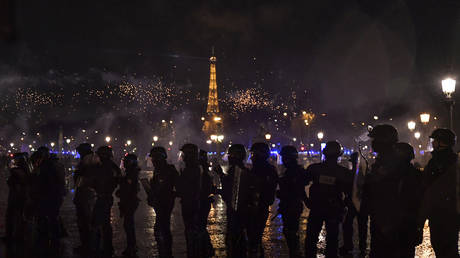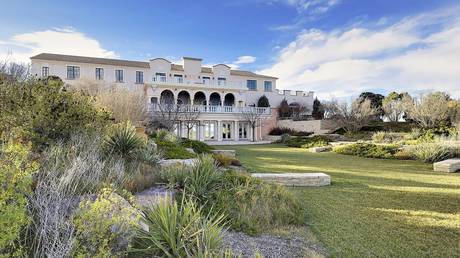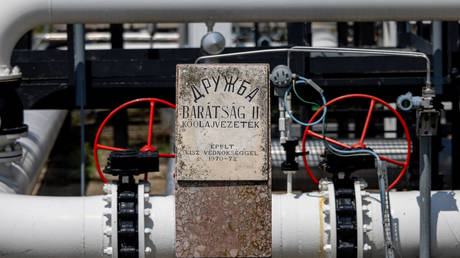
The Macron government’s unilateral and controversial decision to raise the retirement age led to massive demonstrations
French police have banned all gatherings in two protest hotspots across from the parliament in Paris, citing “serious risks of disturbances to public order” in a statement issued on Saturday.
The “public thoroughfare in Place de la Concorde and its surroundings” and the area around Champs d’Elysees were declared off limits following two nights of intense public protest against French President Emmanuel Macron’s deeply unpopular decision to introduce neoliberal pension reforms without parliamentary approval.
Police said 61 demonstrators were arrested in the forbidden zones on Friday after throwing bottles and fireworks at the heavily armored officers, who had arrived to disperse the thousands-strong crowd. Police responded with volleys of tear gas. Another 36 were arrested in Lyon after protesters allegedly tried to break into and burn down a town hall.
The reform raises the retirement age by two years, from 62 to 64, by 2030 and requires workers to contribute to the system for 43 years before they can receive a full pension. Macron has argued that the measure was necessary to avoid the country slipping into an irreversible debt spiral. However, two thirds of French voters oppose the move, and opposition politicians argue there are other means of bridging the fiscal gap, such as raising taxes on the wealthy.
While the deeply unpopular measure passed the Senate earlier this week, Macron subsequently rammed it through the National Assembly without a vote using Article 49.3 of the French Constitution, which states that a law can be adopted as long as the government is not censured by a majority of MPs. There was “too much uncertainty” to leave it to a vote, he said.
Unions responded by calling for a weekend of protest and a strike day next Thursday, denouncing Macron’s actions as “a complete denial of democracy.”
Opposition lawmakers on both the left and the right filed no-confidence motions on Friday, which are likely to be debated Monday, sources told AFP. However, these would require the backing of half the opposition Republicans in order to unseat the government, something that French media report is unlikely.
Months of strikes and protests preceded the reform’s passage, echoing the Yellow Vest movement of pre-Covid France, a revolt that also centered on Macron’s controversial neoliberal austerity proposals.




